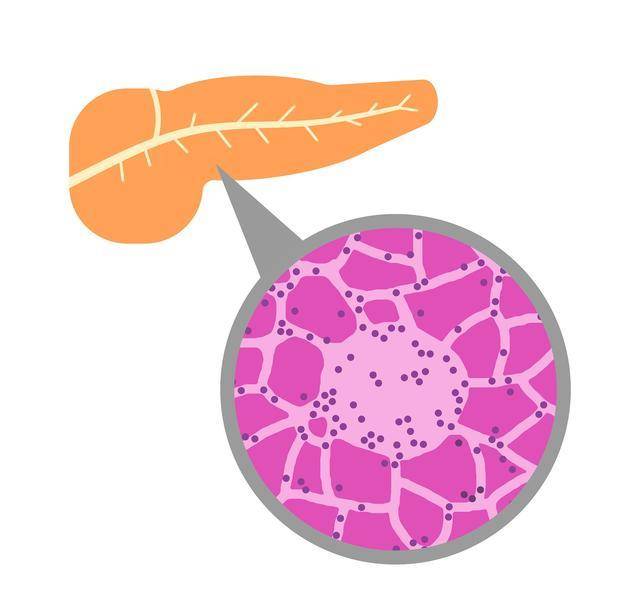Uncle Li is a 58-year-old retired worker who was diagnosed with diabetes a year ago due to unhealthy lifestyle habits. The doctor prescribed oral hypoglycemic drugs for him and advised him to regularly monitor blood sugar levels, control diet, exercise moderately, etc.
However, Uncle Li did not pay much attention to his diabetes and continued his usual lifestyle. He often ate large amounts of rice, noodles, and starchy foods at home, and also enjoyed sweets and desserts. At the same time, he rarely exercised and spent his days watching TV at home.
Such a lifestyle led to very poor blood sugar control for Uncle Li. Despite taking oral hypoglycemic drugs, his blood sugar levels remained consistently high, even reaching dangerous levels of over 20 mmol/L. The doctor reminded him many times to change his lifestyle, but Uncle Li did not take it too seriously.
One day, Uncle Li suddenly felt dizzy, thirsty, and dry mouthed, so his family immediately rushed him to the hospital. After examination, the doctor found that his blood sugar levels had reached a very dangerous level, causing damage to his kidney and heart functions. Despite the doctor’s efforts to save him, ultimately his life could not be saved, and he unfortunately passed away at the hospital.
Two Types of Vegetarian Diets Diabetics Should Avoid
Diabetes is a chronic disease characterized by high blood sugar levels in the body. Dietary control is one of the important means of managing diabetes. For diabetics, diets should avoid high-starch and high-sugar vegetarian foods as much as possible.
High-Starch Vegetarian Foods
High-starch vegetarian foods refer to those with high starch content such as rice, bread, noodles, corn, potatoes, tofu, gluten, etc. These foods digest quickly into glucose, leading to a rapid rise in blood sugar levels. Since diabetic patients’ pancreatic function is impaired and they cannot secrete enough insulin in time, it is difficult to control blood sugar levels. Therefore, diabetic patients should avoid excessive intake of high-starch vegetarian foods.
High-Sugar Vegetarian Foods
High-sugar vegetarian foods are those with high sugar content such as honey, candies, chocolates, desserts, jams, etc. These foods convert rapidly into glucose during digestion, causing a rapid increase in blood sugar levels. Excessive consumption of high-sugar vegetarian foods by diabetic patients can lead to uncontrolled blood sugar levels and increase the risk of diabetic complications.
Harmful Effects of High-Starch Vegetarian Foods on Diabetics
High-starch vegetarian foods contain high starch content such as rice, bread, noodles, corn, potatoes, tofu, gluten, etc. For diabetic patients, excessive consumption of high-starch vegetarian foods can cause the following harms:
Increased Blood Sugar Levels: High-starch vegetarian foods quickly convert into glucose during digestion, leading to a rapid rise in blood sugar levels. Since diabetic patients’ pancreatic function is impaired, they cannot secrete enough insulin in time, making it difficult to control blood sugar levels.
Increased Pancreatic Burden: High-starch vegetarian foods contain a large amount of carbohydrates, excessive intake can lead to excessive secretion of insulin, increasing the burden on the pancreas. Over the long term, this may lead to reduced insulin secretion, worsening the condition of diabetes.
Obesity: High-starch vegetarian foods are calorie-dense, excessive intake can lead to an excess of energy intake, resulting in obesity. Obesity can worsen the condition of diabetic patients, increasing the risk of complications.
Diabetic patients should avoid excessive intake of high-starch vegetarian foods. They can choose low-starch foods such as vegetables, fruits, lean meat, fish, etc., to control blood sugar levels and maintain good health. Regularly monitoring blood sugar levels and following the doctor’s advice on dietary control and medication are also important.
Harmful Effects of High-Sugar Vegetarian Foods on Diabetics
High-sugar vegetarian foods contain high sugar content such as honey, candies, chocolates, desserts, jams, etc. Excessive consumption of high-sugar vegetarian foods can cause the following harms for diabetic patients:
Increased Blood Sugar Levels: The sugar in high-sugar vegetarian foods quickly converts into glucose, leading to a rapid rise in blood sugar levels. Since diabetic patients’ pancreatic function is impaired, they cannot secrete enough insulin in time, making it difficult to control blood sugar levels.
Increased Pancreatic Burden: High-sugar vegetarian foods contain a large amount of sugar, excessive intake can lead to excessive secretion of insulin, increasing the burden on the pancreas. Over the long term, this may lead to reduced insulin secretion, worsening the condition of diabetes.
Obesity: High-sugar vegetarian foods are calorie-dense, excessive intake can lead to an excess of energy intake, resulting in obesity. Obesity can worsen the condition of diabetic patients, increasing the risk of complications.
Diabetic patients should avoid excessive intake of high-sugar vegetarian foods. They can choose low-sugar foods such as vegetables, fruits, lean meat, fish, etc., to control blood sugar levels and maintain good health. Regularly monitoring blood sugar levels and following the doctor’s advice on dietary control and medication are also important.
How to Control Diabetes
Controlling diabetes is a comprehensive issue that requires control through diet, exercise, medication, and other aspects. Here are some methods to control diabetes:
Dietary Control: Dietary control is one of the most important means of managing diabetes. Diabetic patients should avoid high-starch and high-sugar vegetarian foods, choose low-starch and low-sugar foods, such as vegetables, fruits, lean meat, fish, etc. Control the amount and timing of meals, avoid overeating and excessive hunger.
Exercise: Proper exercise can increase body sensitivity and lower blood sugar levels. Diabetic patients can engage in moderate aerobic exercises such as walking, running, swimming, etc. Pay attention to avoiding excessive fatigue and the occurrence of hypoglycemia during exercise.
Medication: Diabetic patients need to undergo medication treatment based on their own conditions and follow the doctor’s advice. Commonly used medications include oral hypoglycemic drugs and insulin injections. Diabetic patients should regularly monitor blood sugar levels and adjust according to blood sugar levels and medication doses.
Regular Check-Ups: Diabetic patients should undergo regular check-ups for blood sugar levels, kidney function, fundus, etc., to promptly detect and treat diabetic complications.


